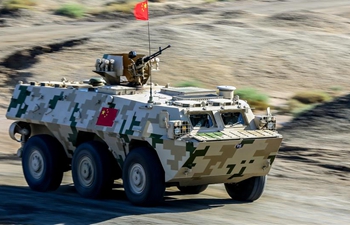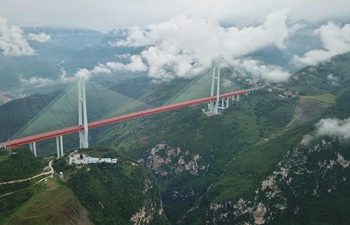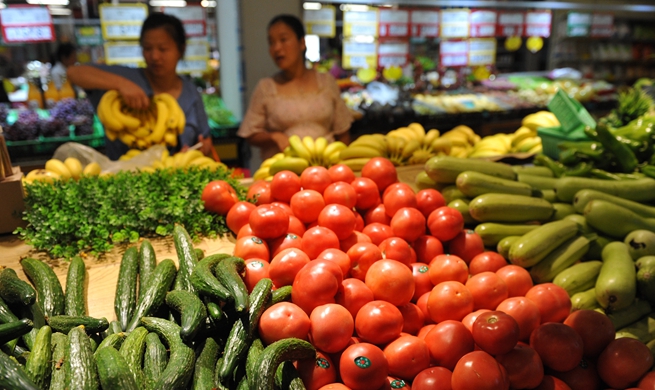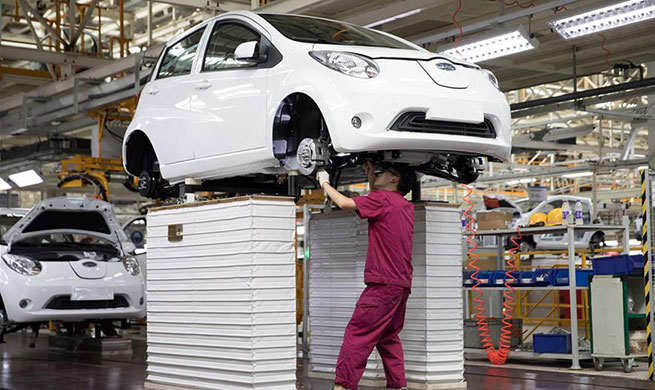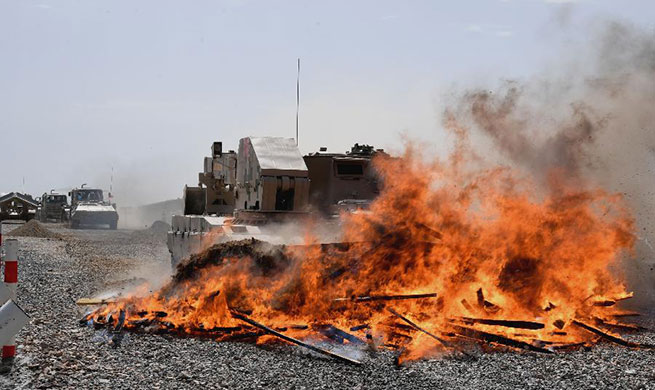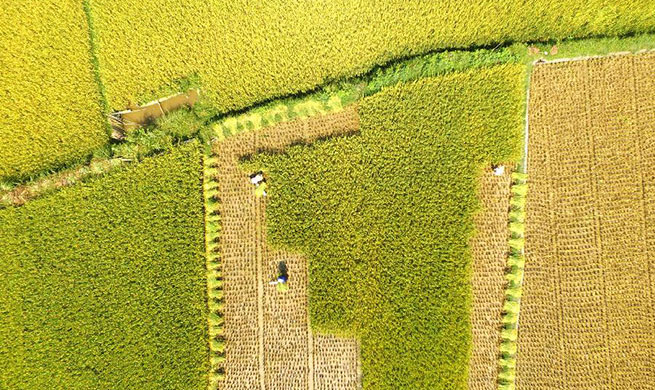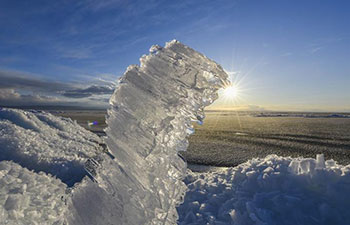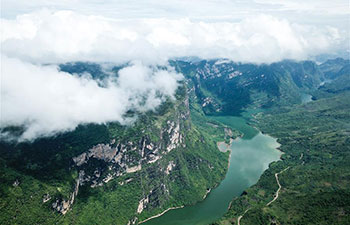by Peter Barker
LONDON, Aug. 9 (Xinhua) -- Britain's railways run the risk of becoming gridlocked after Brexit unless new customs terminals are built across the country to handle incoming trade, an industry body has warned.
The Rail Delivery Group (RDG) told Xinhua on Thursday that Britain's railways needed to plan now for post-Brexit rail trade with the European Union (EU) and also with countries outside the EU which export by rail to Britain, including China.
The details of Brexit are uncertain, but almost all forms of Brexit except a soft one would take Britain outside the EU customs union, necessitating checks for goods as they cross the border.
"We think it is 95 percent likely there will be customs checks, looking at where Brexit is headed," said Laura Wright, head of international policy at the RDG.
"Post-Brexit if we are out of the customs union there is a problem. There are about 2,000 intermodal trains each year using the Channel Tunnel."
"They will need somewhere where customs checks can be performed on them if necessary, depending on what future customs arrangements are," Wright told Xinhua in an exclusive interview on Thursday afternoon.
Wright unveiled a report titled International Railfreight Post-Brexit, which included plans for Rail Customs Areas (RCAs) across Britain to handle the large volume of customs searches needed after Brexit.
There is currently one large marshalling yard at the English side of the Channel Tunnel, which can carry out customs checks. But it would be overwhelmed by the greater volume of checks that would have to be made, Wright said.
"The current terminal at Dollands Moor in Kent is not fit for purpose, and certainly could not cope with the volume of customs checks that might be needed," Wright said.
"That will cause delays on the mainline through the tunnel, and also on the highspeed line in Britain and potentially in France too."
Rail freight traffic from Europe currently operates without the need for customs declarations to be made or regular physical inspection of cargo by customs authorities. This traffic involves a largely manual administration process in which the flow of information is focused primarily on operational tracking.
Customs Inspections are currently just for requirements relating to rail specific safety and security, with two sites used one on each side of the Channel.
All rail freight traffic transported through the Channel Tunnel is subject to a jointly agreed security regime. International rail freight is underpinned by the Convention Concerning International Carriage by Rail (COTIF) agreement and its working contract of carriage, the Contract of International Carriage of Goods by Rail (CIM) Note.
The CIM Note is used throughout Europe and the Middle East and for customs clearance purposes to/from EU member states.
Wright said the RDG, an industry body uniting the nationalized-owner of the railtracks in Britain along with private industry freight and passenger operators, wanted a network of freight yards used across the country which could handle the extra volume of customs work.
There is currently a direct rail freight link from China to Barking in London, and Barking is one of the rail yards where RDG wants to create an RCA.
Currently, Chinese freight to Britain is cleared at the EU border, but after Brexit that will change.
"Chinese freight would be customs cleared going through the EU but would need another customs clearance for the UK because the EU would not be deemed sufficient," said Wright.
"I suspect because British customs do risk-based customs controls that it would be very unusual for trains already cleared by the EU to need a second full check, but it still would be good that as that train arrives for British customs to do a light-touch of that train," she added.
Freight pathways through the Channel Tunnel are currently underused, with only eight daily train paths out of up to 40 being used.
Wright said the plan for RCAs was a way for freight that currently arrives by road to avoid individual and potentially lengthy customs checks at the British border.
"We think this proposition will make rail more attractive than road, and actually get modal shift," Wright said.
